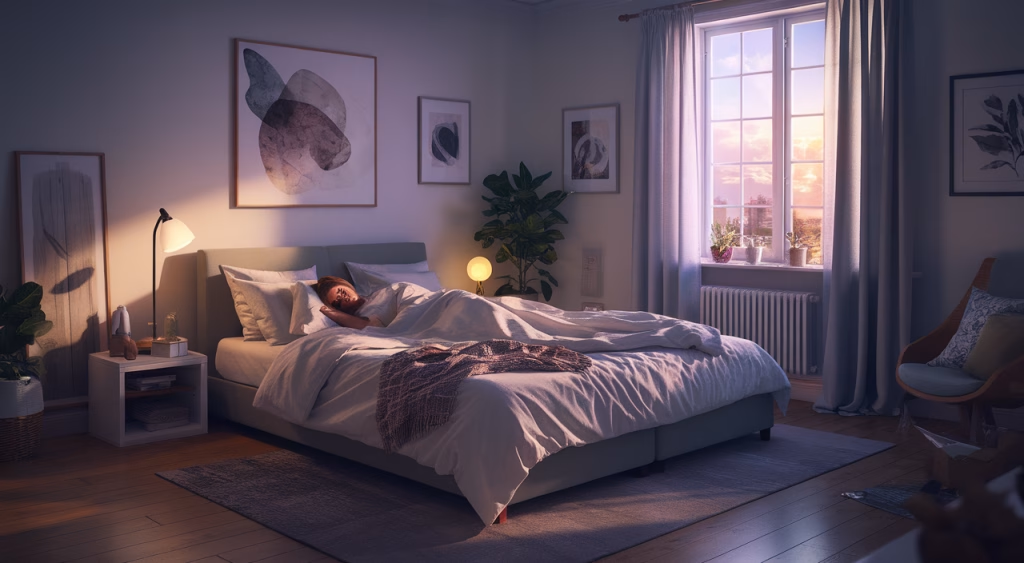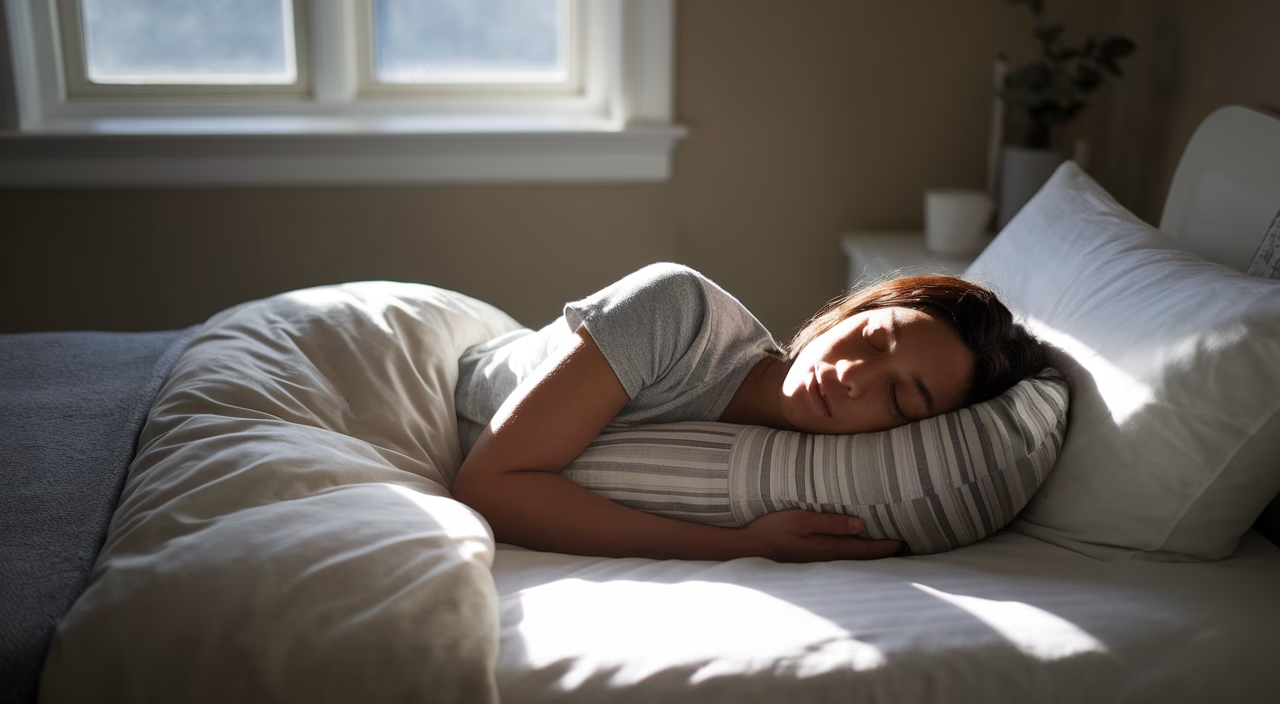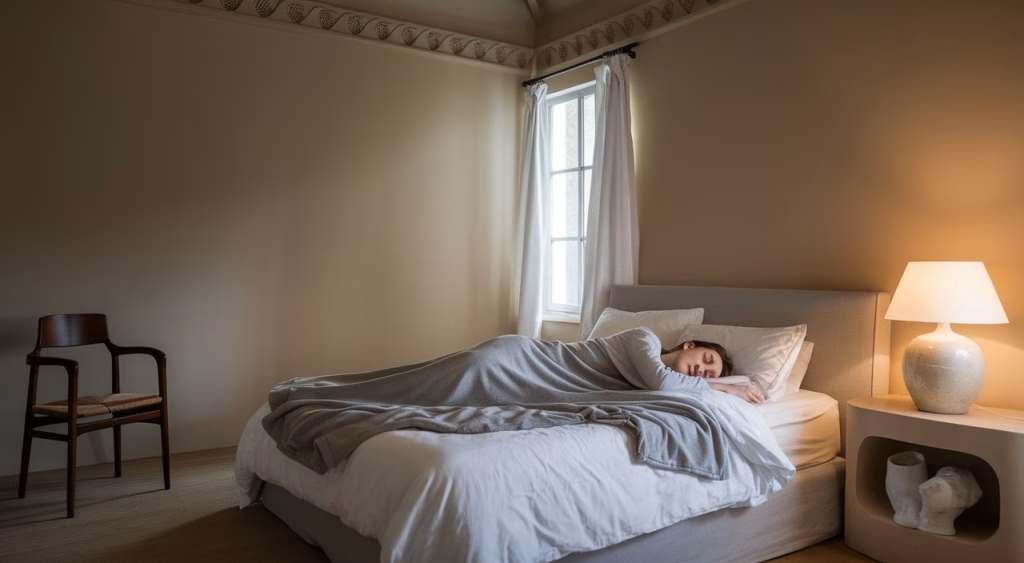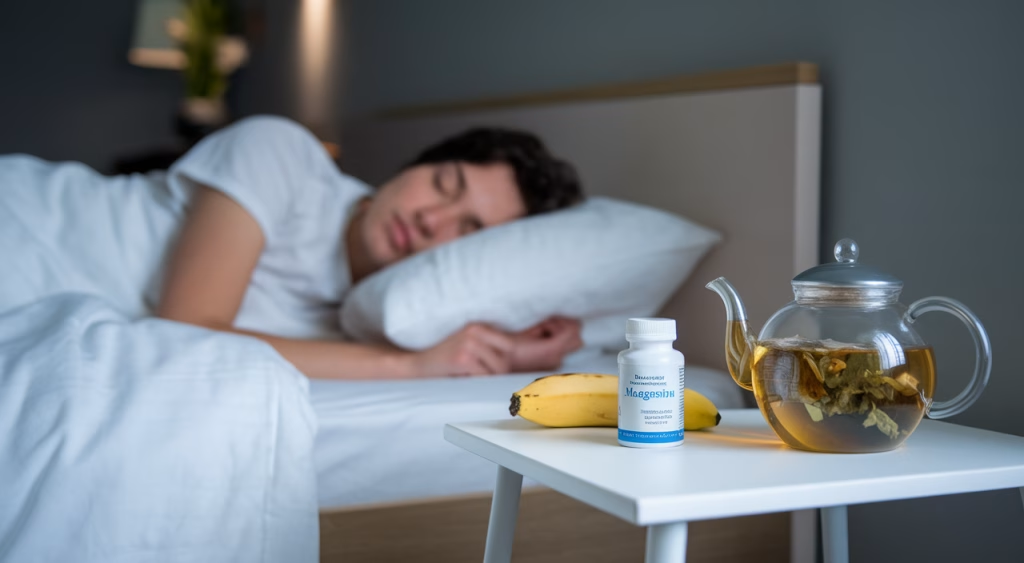How can I stop snoring naturally?
Many natural snoring remedies can help you prevent snoring, but the most effective approach combines simple lifestyle changes with gentle interventions. Understanding the root causes of your snoring is key to finding the right snoring solutions, whether it’s your sleep posture, nasal congestion, or bedtime habits.
TL;DR Summary
- Snoring is often caused by airway obstruction—narrow passages vibrate as you breathe, creating sound.
- Stop snoring naturally by adjusting sleep position, avoiding alcohol before bed, and keeping nasal pathways clear.
- Better sleep hygiene and natural nasal rinses can dramatically reduce nighttime noise.
- Anti-snoring devices may offer support when natural methods aren’t enough, but they should be used with guidance.
- Consistency is key—these snoring remedies work best when practiced nightly as part of a stable routine.
Understanding the Causes of Snoring
To truly stop snoring, we need to understand how and why it happens. Snoring occurs when airflow through your nose or mouth gets partially blocked during sleep. This blockage causes surrounding tissues to vibrate loudly. Several factors lead to this obstruction: poor muscle tone, excess throat tissue, allergies, nasal congestion, or even your sleeping position.
Ever notice how snoring gets worse after drinking or when you’re exhausted? That’s because alcohol relaxation or overtiredness causes your throat muscles to collapse more easily. Over time, this can become a nightly annoyance — not just for you but for anyone trying to sleep nearby.
1. Maintain a Healthy Sleep Schedule
Here’s what often happens: You pull a late night, crash into bed inconsistently, and fall into a heavy sleep stage quickly. That deeper sleep can cause throat muscles to relax too much, triggering snoring. A steady sleep rhythm improves muscle tone and promotes smoother breathing—one of the most effective tips for better sleep.
Practice better sleep hygiene:
- Stick to a consistent sleep-wake time, even on weekends
- Avoid screens 1–2 hours before bedtime
- Keep your room cool, dark, and quiet
Think of your body like a metronome—it performs optimally when your rhythm stays steady. This natural approach to prevent snoring diminishes the problem significantly when your system isn’t thrown off by erratic sleep habits.
2. Sleep on Your Side
Sleeping flat on your back is one of the leading contributors to snoring. Why? Because the base of your tongue and soft palate collapse to the back of your throat, partially obstructing airflow and causing vibrations.
Simply switching your sleep position to your side keeps airways more open. It’s one of the easiest yet most effective ways to stop snoring. In fact, some people use special pillows or wear positional trainers to help them avoid rolling onto their backs during the night.
Side sleeping also improves digestion, reduces acid reflux, and can even help those with mild sleep apnea. This simple change in sleep position delivers big results for preventing snoring.
3. Avoid Alcohol Before Bed
Enjoy a glass with dinner? That’s fine. But having alcohol 1–2 hours before your head hits the pillow can turn you into a snoring machine. Alcohol is a muscle relaxant, and when your throat muscles relax too much, snoring almost always follows.
Here’s something to try: avoid alcohol for a few nights and monitor your sleep. You might notice less throat dryness in the morning, more restfulness, and—if your partner usually complains—sweet silence. This natural snoring remedy costs nothing but can deliver immediate results.
Also, watch for sedating medications before bed (like antihistamines or some pain relievers). Like alcohol, they promote muscle relaxation and may worsen snoring symptoms.
4. Keep Nasal Passages Clear
Congestion is like a clogged pipe—you’re forcing air through tight spaces, which creates turbulence and sound. If your snoring starts in the nose, keeping passages clear before bed is essential. Sinus irritation, seasonal allergies, or a cold can all trigger the problem.
Try these natural snoring remedies:
- Use a warm shower or steam inhalation before bedtime
- Do a saline rinse or use a neti pot – gently
- Elevate your head slightly to promote drainage
In practice, clearing airways lowers inflammation and can significantly quiet things down. And as a bonus, you’ll often sleep better without a stuffed nose distracting you all night.
5. Try Natural Remedies
Herbal treatments, essential oils, and dietary changes can all offer snoring relief without prescriptions. They’re not magic, but when used consistently, these natural approaches support overall airway health and throat muscle tone to help you stop snoring.
Nutritional boosts for preventing snoring:
- Magnesium-rich foods (spinach, nuts, whole grains) to reduce inflammation
- Stay hydrated — dryness contributes to throat irritation and snoring sounds
Natural snoring remedies to explore:
- Peppermint oil — a drop under the nose may reduce nasal swelling
- Eucalyptus steam — loosens mucus and opens airways
- A throat exercise routine — strengthens airway muscles for quieter breathing
It’s all about stacking small wins. Combined, these natural methods make a big difference over time for better sleep quality.
6. Consider Anti-Snoring Devices
Natural methods not quite cutting it? That’s where simple anti-snoring devices come into play—gentle aids designed to keep your airway open. No surgery. No big machines. Just subtle support for better breathing while you sleep.
Common anti-snoring solutions include:
- Nasal dilators — like a bridge for your nostrils
- Chin straps — support the jaw to minimize mouth breathing
- Mouthpieces — prevent the tongue from slipping back into throat
Unlike medical-grade CPAP machines used for severe apnea, these are simple tools for occasional or mild snoring. But a word of caution: not every device works for everyone. Try one at a time and see what produces real results to help you prevent snoring.
Cost Guide: What Do Snoring Remedies Cost?
| Remedy Type | Low-End Cost | Mid-Range Cost | High-End Cost |
|---|---|---|---|
| Positional Pillows | $20 | $60 | $100 |
| Essential Oils (e.g. Eucalyptus) | $8 | $15 | $35 |
| Nasal Dilators | $10 | $25 | $50 |
| Mouthpieces | $30 | $70 | $120+ |
Conclusion
Snoring might feel like an inevitable part of your night—but it doesn’t have to be. Often, it’s a culmination of small lifestyle factors working against you. The great news is that these natural snoring remedies are effective, accessible, and empowering. From adjusting your sleep position to clearing sinus passages or exploring safe anti-snoring solutions, you have multiple ways to stop snoring naturally. The true magic lies in commitment—implement these tips for better sleep consistently, and give your body time to adapt. Sleep doesn’t have to be loud. With the right snoring remedies, quiet nights can become your new normal.
Frequently Asked Questions
- Why do I snore only when I lay on my back?
When you sleep on your back, gravity pulls the tongue and soft palate backward, narrowing the airway and causing vibrations that result in snoring. - Can snoring be cured naturally?
Many people experience major reductions in snoring with natural remedies like changing sleep position, improving nasal health, avoiding alcohol, and using essential oils or lifestyle changes. - Does being overweight make snoring worse?
Excess body weight, particularly around the neck, can put pressure on airways and make snoring more likely or more intense. - Will nasal strips or dilators help my snoring?
Yes, for those whose snoring originates in the nose due to congestion or narrow passages, these devices can help open up nasal airflow. - What are the best exercises to stop snoring?
Oral and throat exercises like tongue curls, soft palate stretches, and even singing can strengthen muscles and reduce snoring over time. - Is snoring always a sign of sleep apnea?
No. While snoring is a key symptom, not all snorers have sleep apnea. If you wake frequently gasping or feel exhausted despite enough rest, a sleep study might be warranted. - What kind of doctor should I see for snoring?
A sleep specialist or ENT (ear, nose, throat) doctor can help diagnose the cause and recommend appropriate treatments or further testing.





